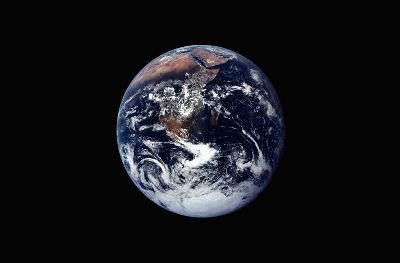by Larry
September, 2005The Challenge of SustainabilityOver the next couple generations humankind faces a number of key developments. If we adjust well to them, the years beyond this critical transition period may be easier. But, as we are seeing with the recent natural or disease-related disasters in sub-Saharan Africa, FL, SE Asia, the Indian Ocean nations, and on the US Gulf Coast, along the way there will almost certainly be many temporarily overwhelming crises with which to deal. The manner with which we proceed through the next few decades may determine whether or not both our environment and we ourselves can be sustained well into this new millennium. Three major situations will be foci for the reshaping of our current century. First, our population will either get completely out of control or plateau at a level likely greater than it is today, but perhaps not horrifically so. Experts estimate it will by 2050 be about 50% higher than our present roughly 6 billion, though some pessimists suspect it will be either much lower, as a result of wars and pestilence, or substantially higher, to maybe as much as 11 billion, if current trends in certain regions persist. Second, needing to accommodate such a huge potential for additional individuals and for all the things (schools, treatment plants, prisons, mass transit systems, communications centers, farms, roads, houses, health care facilities, courts, military installations, energy utilities, restaurants, factories, governing bodies, markets and shopping centers, water wells, etc.) necessary to keep them alive and productive will be a difficult but probably not insurmountable task. But if we are to successfully get through the next couple generations or so, we must do one crucial thing more, while we are so busy growing and producing: preserve our environment at least to a degree that it and we can be sustained not merely for the short-term but indefinitely. The record in New Orleans and the rest of southern LA, where inadequate planning and a neglect of essential environmental and engineering concerns have led to a long predicted catastrophic outcome, may be illustrative of larger global issues of sustainability. When we try to ignore nature, sooner or later we are forced back to reality.
It is proverbial that politicians do not deal well with long-term challenges, preferring simply to react to problems in the short run and to blame each other when things inevitably go wrong. Yet extraordinary international leadership is vital regarding these issues. Much more coordination and cooperation may be required for us to safely negotiate the crunch of such forces that we are all facing. If we just wait for things, willy-nilly, to occur as they may, more or less by accident, as if the population can keep increasing, the environment can continue to be degraded, and the chasm between those with and those without may be enlarged without limit, then we could face a bleak future and ultimately the beginnings of both societal and environmental collapse by the middle of the century.
Source: The Climax of Humanity. George Musser in Scientific American, Vol. 293, No. 3, pages 44-47; September 2005 |
 Third, the world is getting richer, but unevenly so. In many ways the differences between the haves and the have-nots are becoming larger than ever. In my opinion, there is something terribly wrong, and ultimately unsustainable, when but a few hundred billionaires worldwide are each wealthier than entire countries, as a group controlling most of the globe's private assets, while a billion or more others must make do with the equivalent of a few hundred dollars a year or less. Things are improving. In both China and India, barring a major conflict or a pandemic, the next couple generations will likely see the emergence of a vast middle class as well off as many in the richest nations. Yet in our own country, while our CEOs and billionaires are taking home more and more, for several years the percentage of us living in poverty has been increasing. In Africa, Asia, and a number of Arabic or Islamic countries now, a multitude of factors have kept many people destitute and bereft of viable futures. Meanwhile, along with relative progress for some, carbon dioxide emissions (thought to increase global warming) are rising dangerously. At the same time, fresh water, fish, refined petroleum, forests, and other essential resources are being substantially depleted.
Third, the world is getting richer, but unevenly so. In many ways the differences between the haves and the have-nots are becoming larger than ever. In my opinion, there is something terribly wrong, and ultimately unsustainable, when but a few hundred billionaires worldwide are each wealthier than entire countries, as a group controlling most of the globe's private assets, while a billion or more others must make do with the equivalent of a few hundred dollars a year or less. Things are improving. In both China and India, barring a major conflict or a pandemic, the next couple generations will likely see the emergence of a vast middle class as well off as many in the richest nations. Yet in our own country, while our CEOs and billionaires are taking home more and more, for several years the percentage of us living in poverty has been increasing. In Africa, Asia, and a number of Arabic or Islamic countries now, a multitude of factors have kept many people destitute and bereft of viable futures. Meanwhile, along with relative progress for some, carbon dioxide emissions (thought to increase global warming) are rising dangerously. At the same time, fresh water, fish, refined petroleum, forests, and other essential resources are being substantially depleted.